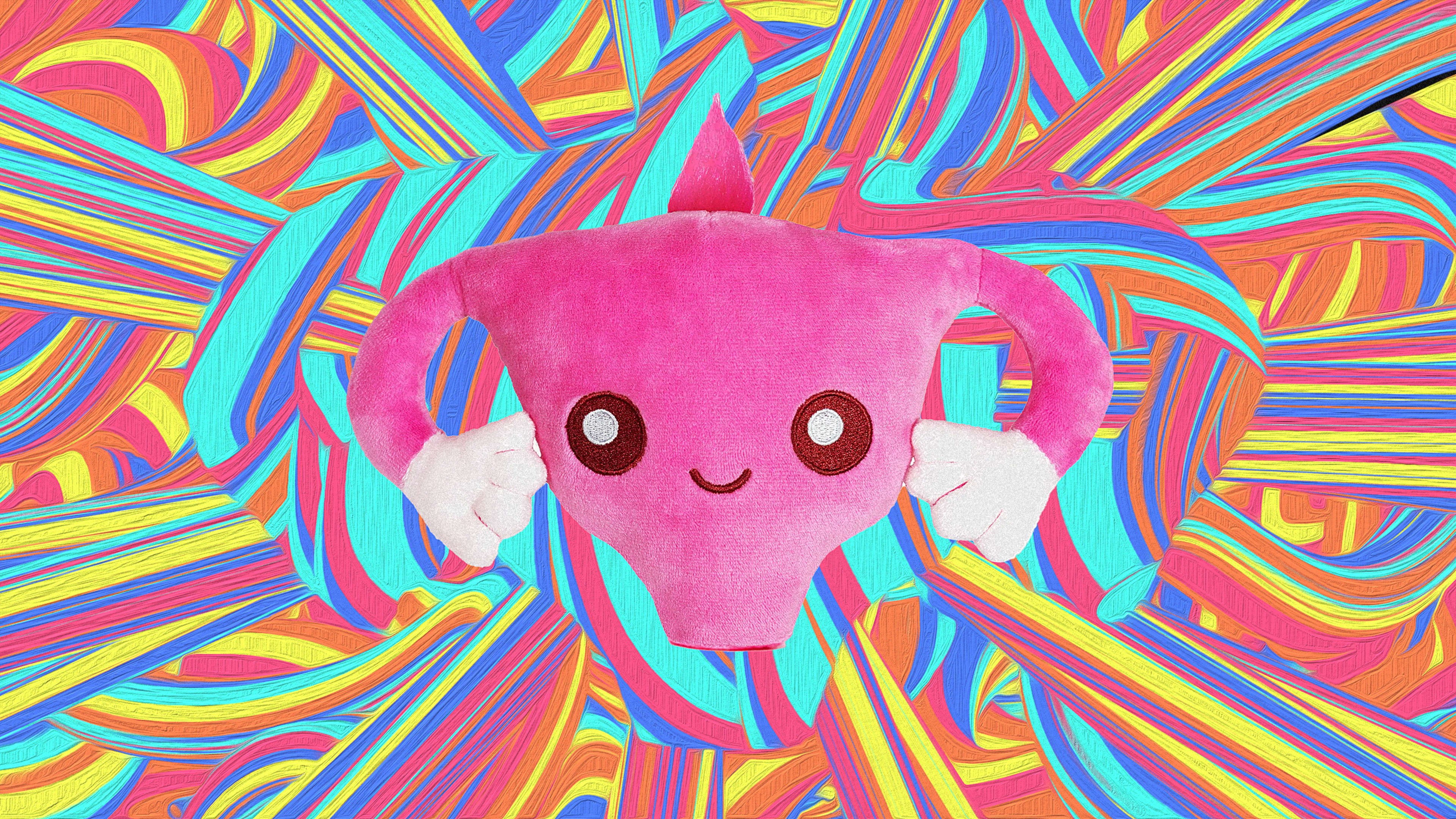Branded is a weekly column devoted to the intersection of marketing, business, design, and culture.
Can designing a “protest plushie” make an impact on the current profoundly divided political environment? One North Carolina-based ad agency thinks so—or at least that it’s definitely worth trying.
Typically, an agency that embraces a particular point of view about a societal issue will do some pro bono work on behalf of a like-minded advocacy group. But that approach wasn’t quite enough for The Variable. Instead, the Winston-Salem agency, which was named one of Fast Company’s Best Workplaces for Innovators in 2021, not only created its own commerce-meets-activism campaign, it made an actual product—the Woombie, a pink, uterus-shaped plush toy. While the smiling object is actually pretty cute, it’s also the center of a clever and very serious effort to support women’s bodily rights.
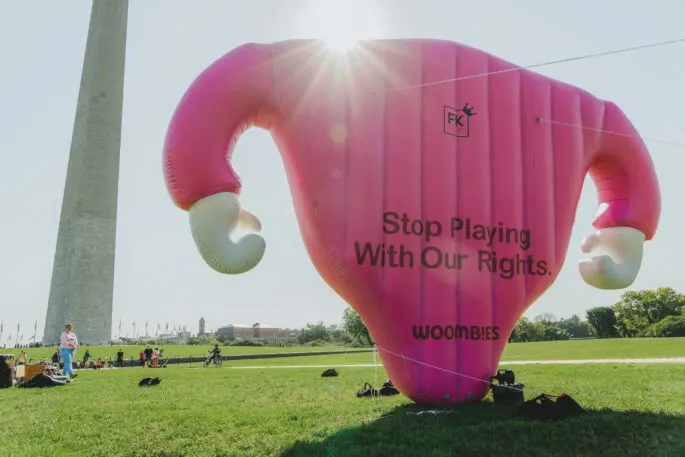
The Variable designed and manufactured the plushies, and is now selling them for $19.99 (with volume discounts for, say, an “Extreme Court Six Pack” of the toys) with a get-one-send-one twist: For each Woombie you buy, the agency will send one to “an anti-choice politician,” as a related promotional site explains: “So every time an unintended consequence of the reversal of Roe v. Wade rears its ugly head, they’ll have a furry pink regret charm to remind them of their shortsightedness.” Plus, the agency says, all proceeds are going to Planned Parenthood.
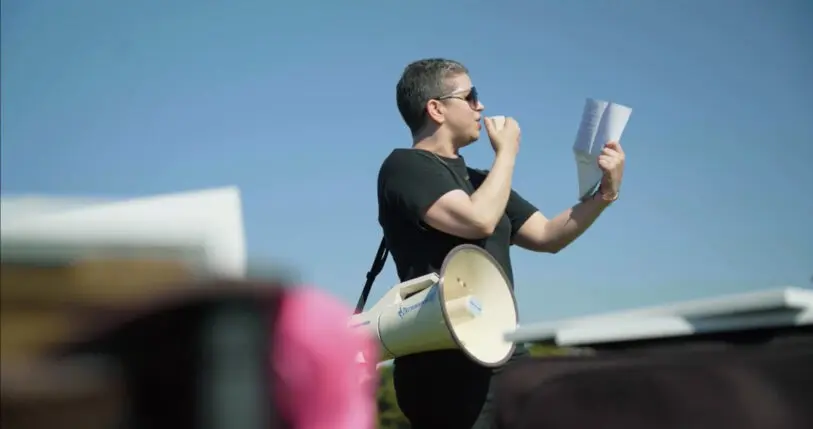
While the Woombie responds to the Supreme Court’s decision this summer to overturn Roe, there’s a deeper back story. The project was more directly inspired by Variable associate creative director Sarah Mosseller’s personal experience: In her twenties, multiple doctors told her she was “too young” to have her tubes tied or ovaries removed, as she wished. (“I never wanted children and hated the way hormonal birth control made me feel,” Mosseller explained in a written account of her experience.) Even after she was later diagnosed with breast cancer, doctors put more emphasis on “protecting my fertility” than on allowing her to remove her ovaries, she wrote. The Roe reversal, “is just one part of a greater issue—people who can become pregnant need bodily autonomy now,” she wrote.
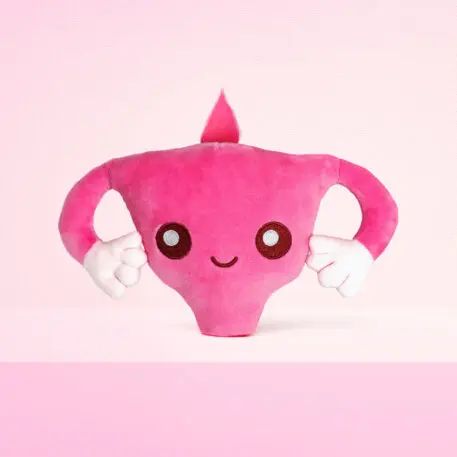
Despite its decidedly unamusing origins, the campaign is notable for its edgy, humor-spiked tone. It launched at the Women’s March in Washington, D.C., earlier this month, where The Variable set up a huge, inflatable Woombie across from the Washington Monument. Since then, the agency has released a series of faux home-shopping-network-style videos, where the female hosts walk a tightrope between serving up a bubbly, cornball sales pitch and trying not to explode in rage.
“With Woombies, men can have a womb of their very own,” one host smilingly emotes. “So maybe they’ll just leave ours alone, right?” Her cohost, in a good-humored tone, responds, “Fat fucking chance there! Ha ha! Sure would be nice, though.” And they revert to the pitch.
Similar tension runs through all the spots. “If you’re enraged, it’s time to ovary act,” goes another pitch, soon followed by a sunny-sounding: “Unlike a man’s fragile ego and testes, Woombies are tough!”
These videos live at a site called the Dystopian Shopping Network—“real products inspired by real politicians”—so perhaps there will be sequel objects. Meanwhile, shorter videos with a Woombie jingle, puppets, and more are being seeded on social media (examples here and here).
If launching a product seems like an elaborate way to make an argument, that’s sort of the point. Variable CEO David Mullen cites the aphorism attributed to James Murphy of LCD Soundsystem: The best way to complain is to make things. “We’ve always loved that sentiment and use the mindset to turn complaining into creating,” he tells Fast Company. He points to past Variable product projects, like Sunshine, an “energy drink for the rest of us” that responded to the aggressively branded Monsters and Red Bulls of the world, and Kabook!, a “personalized children’s book platform” that People magazine named a top gift for kids.
With Woombie, it helped that chief creative officer Joe Parrish had experience as founder of a toy company called 5mississippi, focused on getting kids to play outside, that created a popular pool toy. “No one understands product-as-advertising better than the toy industry,” says Parrish. The highly sewing-proficient mom of one of the agency’s strategists created a template to make prototypes; from there the project leaned on Parrish’s toy background, finding a manufacturer, and producing Woombies at scale.

A few weeks after the Women’s March launch, with online efforts just getting underway, “we’ve already raised over $3,500 for Planned Parenthood and mailed 150 Woombies to anti-choice politicians,” Parrish said, “with 175 new Buy One, Send One Woombies being shipped this week.” As for negative pushback, so far there hasn’t been much to speak of.
CEO Mullen suggests this may be because the Woombie doesn’t, in the agency’s view, represent a strident stand; it’s an attempt to make a point about the unintended consequences of overturning of Roe. “We’re advocating for empathy,” he says, and if a potential client objects to that stance, well, “then we wouldn’t have been the right partners for each other anyway.”
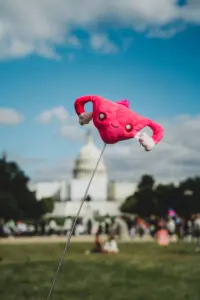
Mosseller says reactions so far have been as hoped for. “At the Washington Monument,” she wrote in a follow-up email, “mothers posed with their daughters in front of our giant uterus with their arms flexed, displaying their strength and resilience in the face of yet another attack on women’s individual liberties. Fathers got Woombies for their daughters.” Those just learning of the “real consequences of denying half the country their bodily autonomy,” she adds, react by wanting to take action.
Maybe that’s evidence enough that producing an actual object was worth it. “I love digital, but digital experiences are fleeting,” Parrish says. “This was an opportunity to make something that people could imbue with real meaning—and that could be around longer than an ad.”
Recognize your brand’s excellence by applying to this year’s Brands That Matter Awards before the early-rate deadline, May 3.
